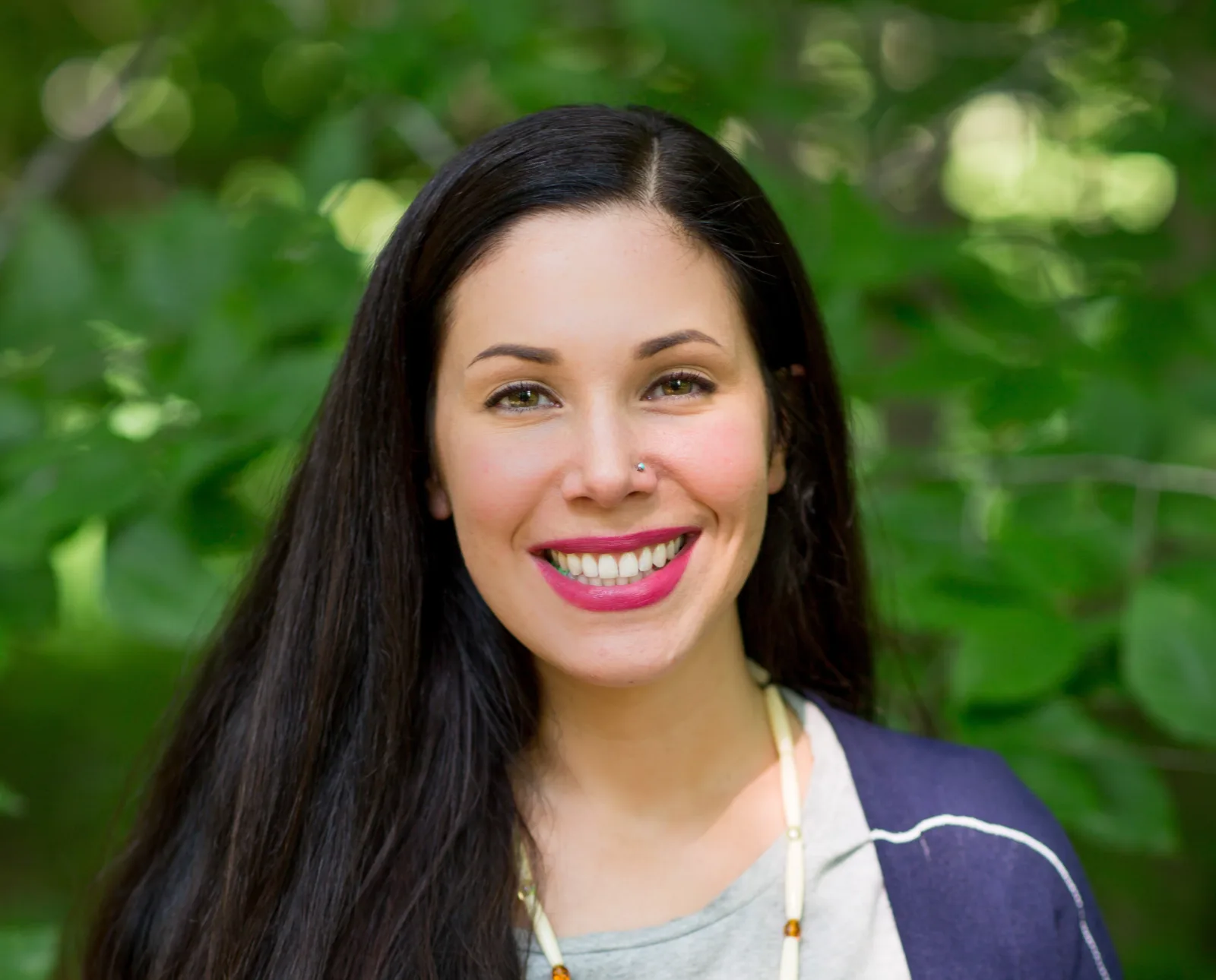The Newberry is pleased to announce that Blaire Topash-Caldwell has joined the library’s staff as Mellon Public Humanities Fellow. In this role, Topash-Caldwell will contribute to a multiyear project to expand access to the Newberry’s extensive Indigenous Studies collection. Supported by a generous grant from The Andrew W. Mellon Foundation, the project will align the Newberry’s institutional policies and actions with Native perspectives, cultural practices, and knowledge systems.
Topash-Caldwell comes to the Newberry from the Pokagon Band of Potawatomi Nation’s Department of Language and Culture, where she served as the tribe’s first archivist.
A citizen of the Pokagon Band, Topash-Caldwell, has worked to make relevant archival materials more accessible to Pokagon tribal members and collaborated with several institutions such as the National Archives in Chicago and the Eiteljorg Museum to make this possible. As part of this effort, she launched, managed, and developed content for a tribally-based content management system called Wiwkwébthëgen, expanding outreach and accessibility for the many tribal members who live beyond the Pokagon Band’s service area.
“Blaire Topash-Caldwell has a compelling blend of experiences and strengths related to collaborating with Native American communities, understanding archival collections, and developing engaging, educational programs for a range of audiences,” said Rose Miron, Director of the Newberry’s D’Arcy McNickle Center for American Indian and Indigenous Studies. “These skills will be critical to advancing the Newberry’s mission and the McNickle Center’s ongoing outreach to Native students, teachers, scholars, and community members.”
Dr. Topash-Caldwell recently completed her PhD in Anthropology at the University of New Mexico. Her scholarly work focuses on “Neshnabé futurisms,” tribal ecological revitalization projects that disrupt dominant narratives about climate change that erase Native people. Focusing on projects in the Great Lakes, Dr. Topash-Caldwell shows how Neshnabé futurisms guide Native ecologists, theorists, and activists as they mitigate ongoing ecological destruction in their homelands, positioning these leaders as active agents shaping their futures.
While at the University of New Mexico, Dr. Topash-Caldwell also served as a Research Assistant for the Maxwell Museum of Anthropology for five years, where she worked with several tribal nations in the Southwest to connect Indigenous researchers with collection materials and oversaw impressive programming such as an artist residency.
